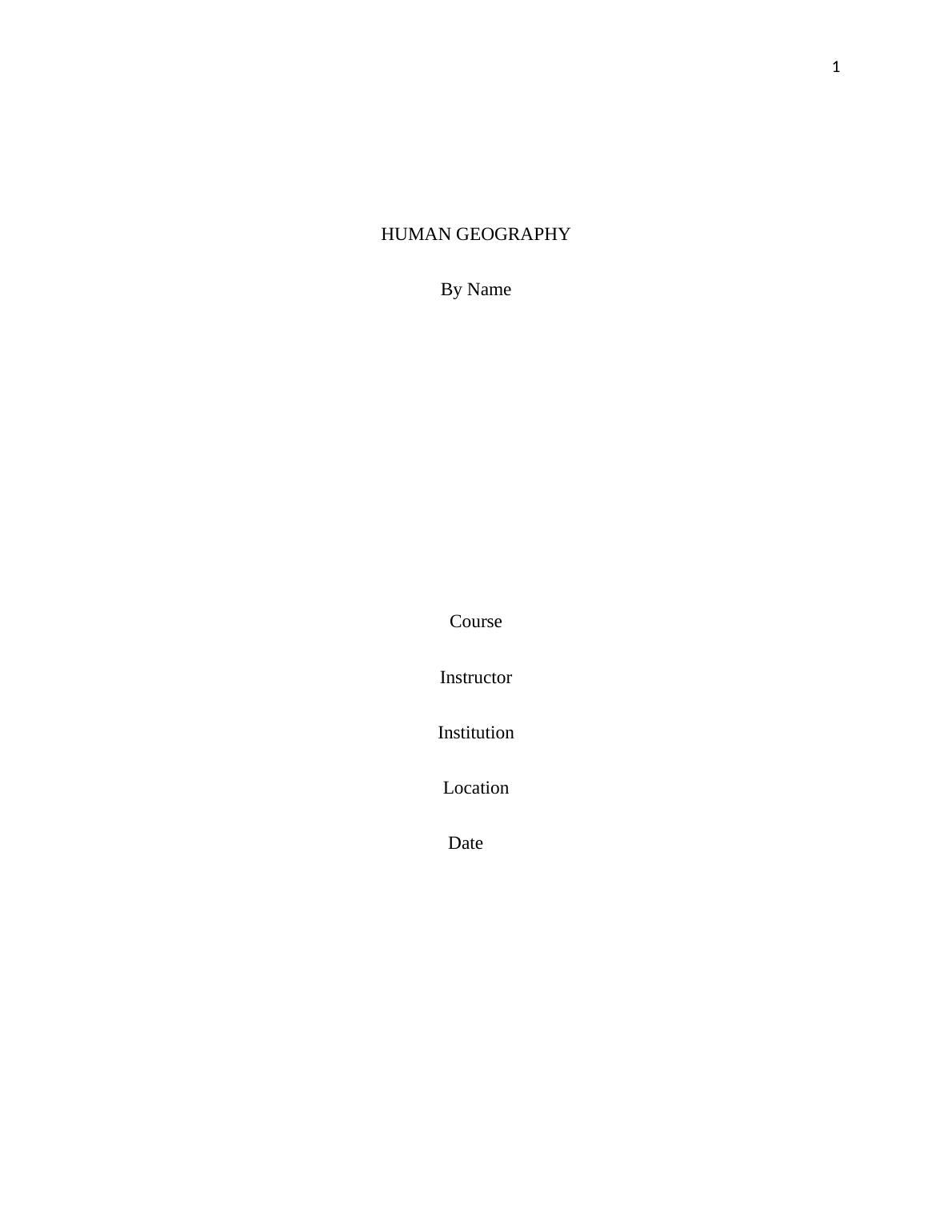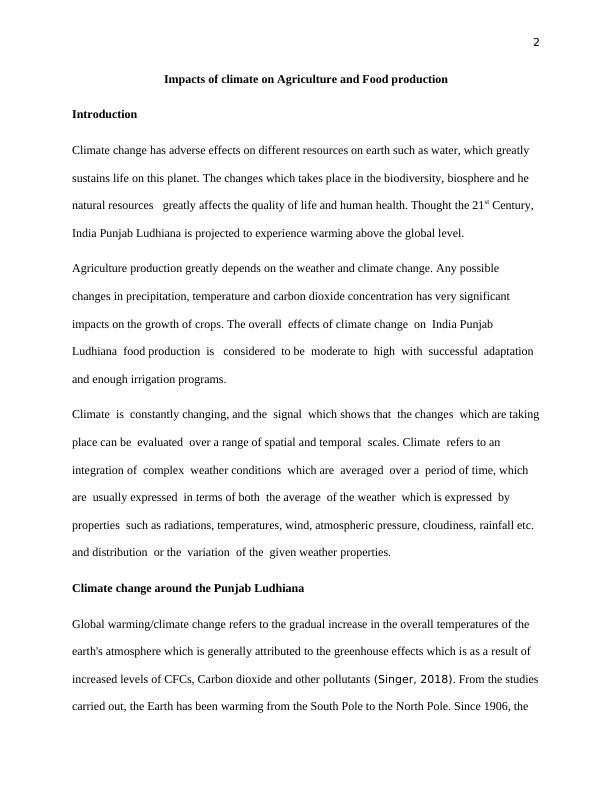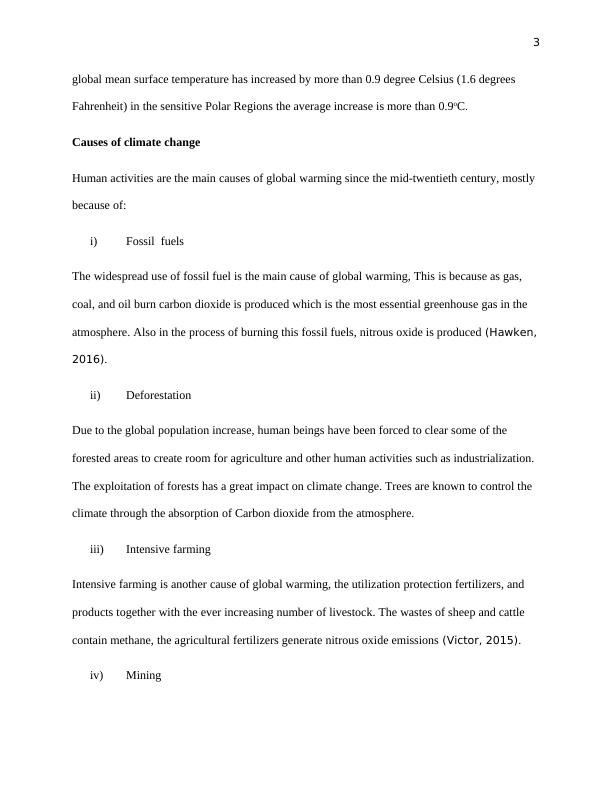Impacts of climate on Agriculture and Food production
Added on 2022-12-03
10 Pages1385 Words172 Views
End of preview
Want to access all the pages? Upload your documents or become a member.
SREM01-8 Abstract The Effects of the Emission of Greenhouse Gas on the Earth's Atmosphere
|11
|2867
|441
Climate Change: An Extent Result of Human Activities
|5
|1584
|354
Causes and Effects of Climate Change
|8
|1539
|392
Is Climate Change a Result of Human Activities?
|7
|1558
|65
OUMH1203 : English for Written Communication
|4
|823
|145
To what extent is Climate Change a result of human activities
|6
|1437
|403



